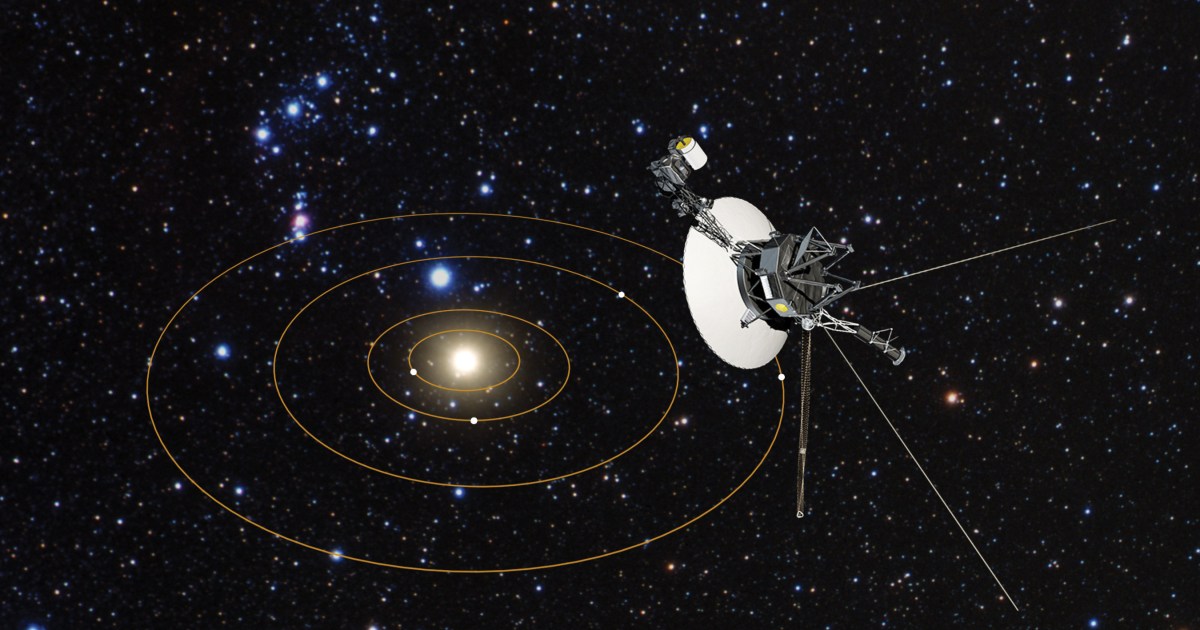On the scale of the universe, humanity is not even a speck.
This vertically oriented logarithmic map of the universe spans nearly 20 orders of magnitude, taking us from planet Earth to the edge of the observable universe. Each large “mark” on the scale bar on the right corresponds to a factor of 10 increase in distance scales.
We are all just a small, minuscule part of our own planet: the Earth.
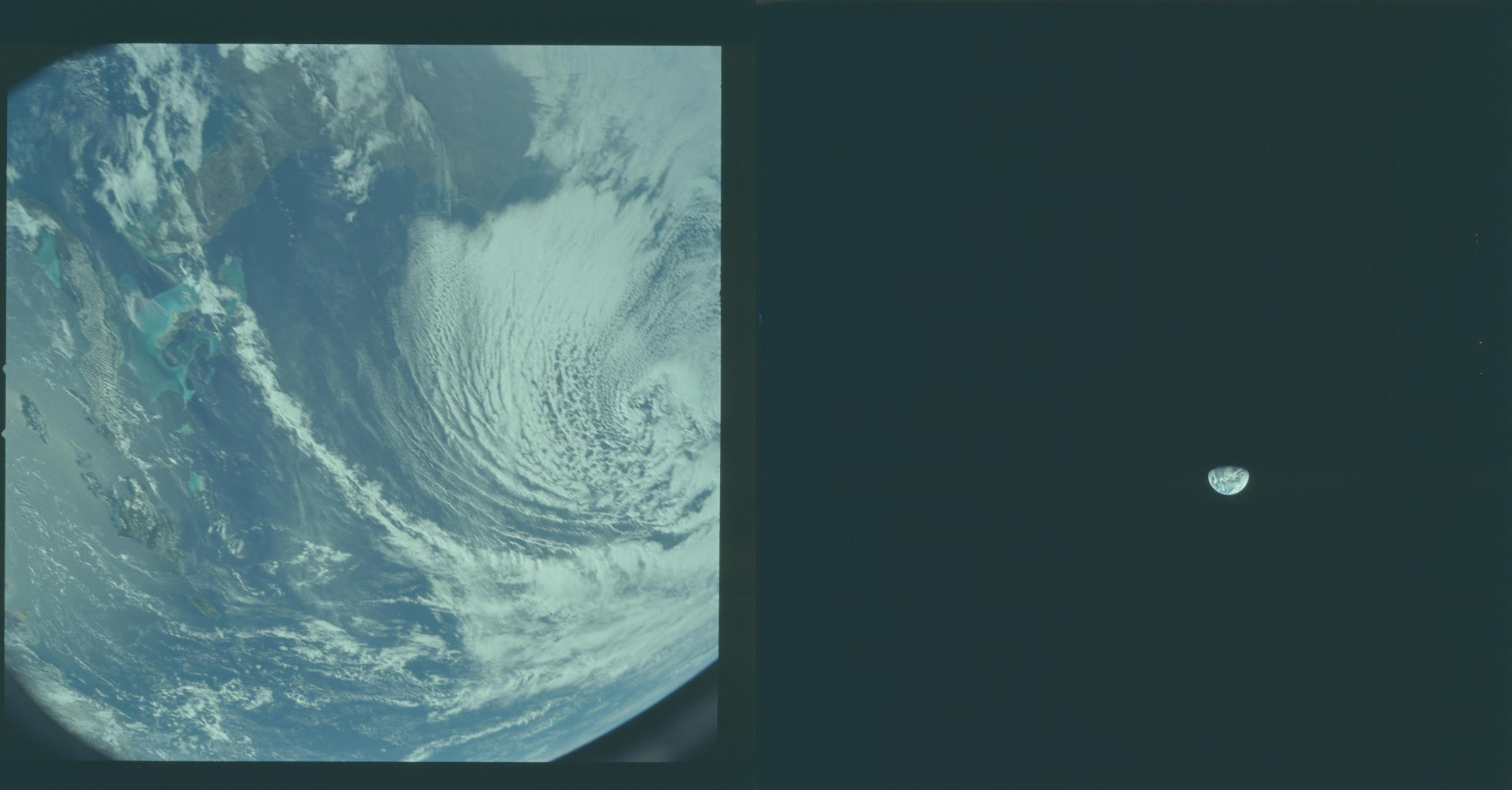
Apollo 8 astronauts were the first humans to travel so far from our planet that they could see the entire Earth at once. Shown here are the closest (left) and farthest (right) views of Earth, as obtained with the same Hasselblad camera. Except for the three people on board at the time, all of humanity is confined to the pale blue dot on the right.
It would take almost an Avogadroan number of people to equal the mass of the Earth.
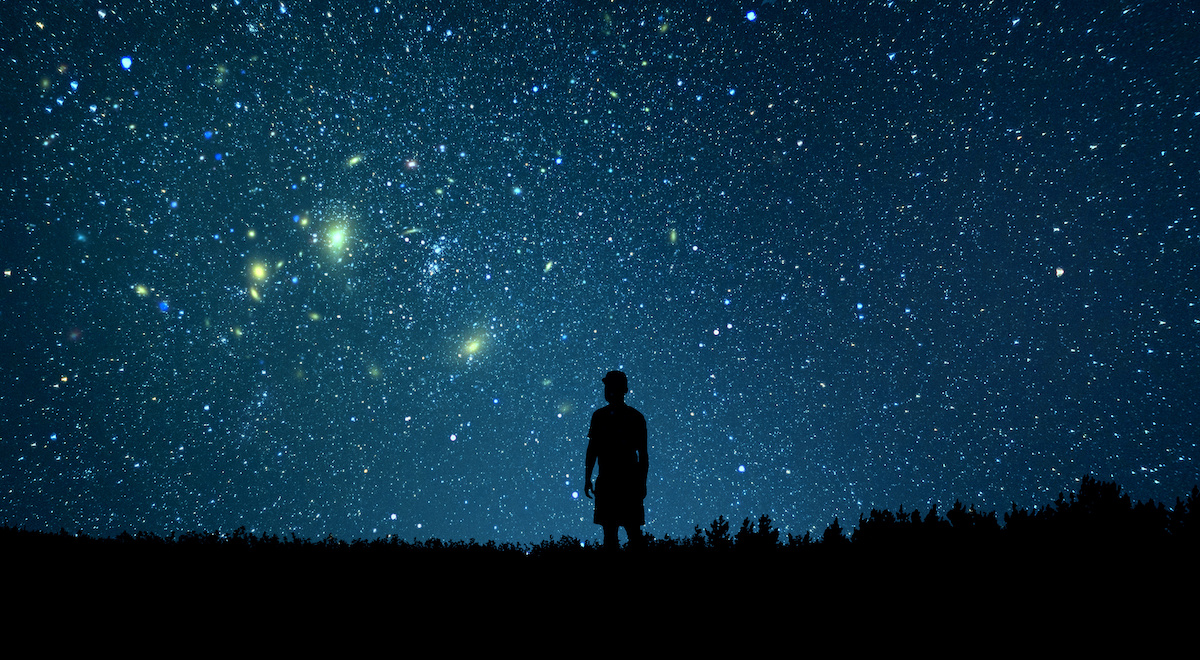
Under ideal dark sky conditions, the unaided human eye can see up to 6,000 stars at once, and up to 9,000 stars in total if it could see the entire sky at once, unobstructed by the Earth itself. Compared to Earth, at ~6 septillion kilograms, all 8+ billion people together are barely a drop in the ocean compared to the total mass of planet Earth.
Earth is just one of the modest planets orbiting the Sun: one of approximately 400 billion stars in the Milky Way.
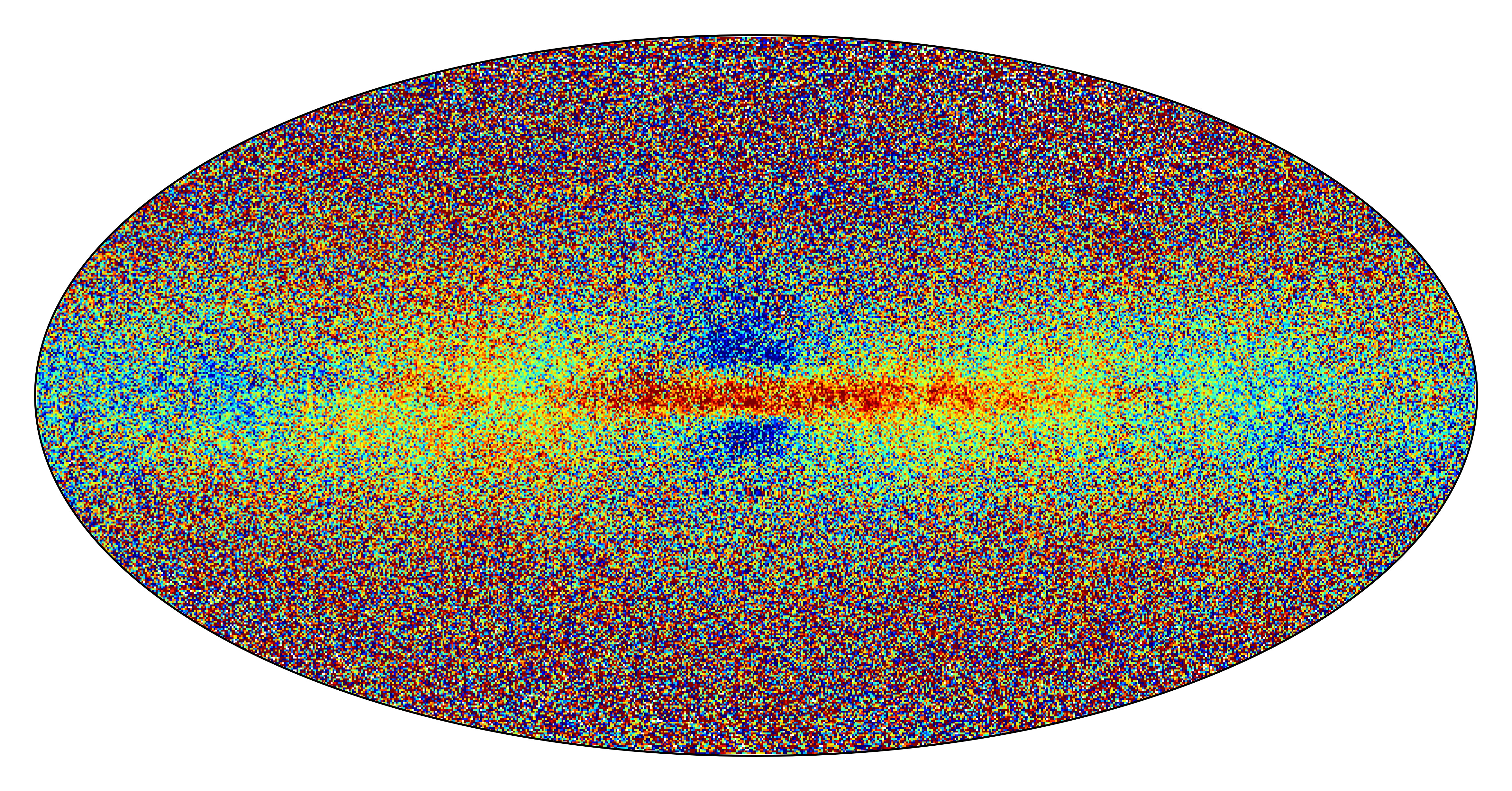
This color-coded map shows the heavy element abundances of over 6 million stars in the Milky Way. Stars in red, orange, and yellow are all rich enough in heavy elements that they should have planets; stars coded green and cyan should have only rare planets, and stars coded blue or violet should have no planets at all. Note that the central plane of the galactic disk, which extends all the way to the galactic core, has the potential for habitable, rocky planets. This map shows less than 0.01% of the stars in our galaxy.
Our Milky Way is the second largest within our Local Group of galaxies, after Andromeda.
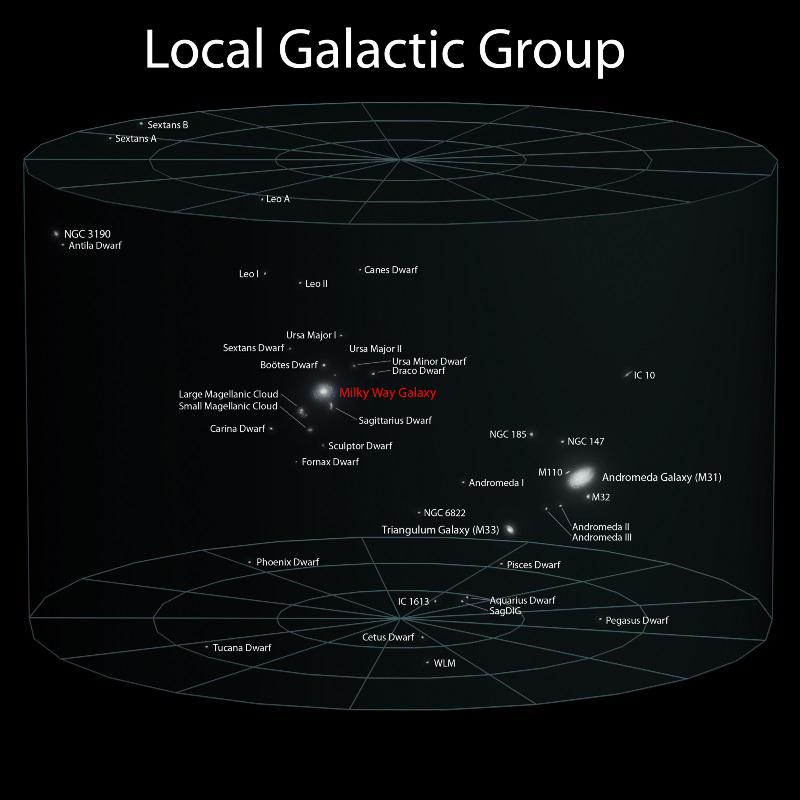
Our Local Group of galaxies is dominated by Andromeda and the Milky Way, but there’s no denying that Andromeda is the largest, with the Milky Way being #2, Triangulum being #3, and the LMC being #4. At only 165,000 light years away, it is by far the closest of the top 10+ galaxies to us, and as such takes up the largest angular span on the sky of any galaxy outside of the Milky Way. There are over 100 galaxies within the Local Group, but Andromeda and the Milky Way contain the most stars, as well as the most mass.
Outside the Local Group, there are many larger, richer, and more massive groups and clusters of galaxies.
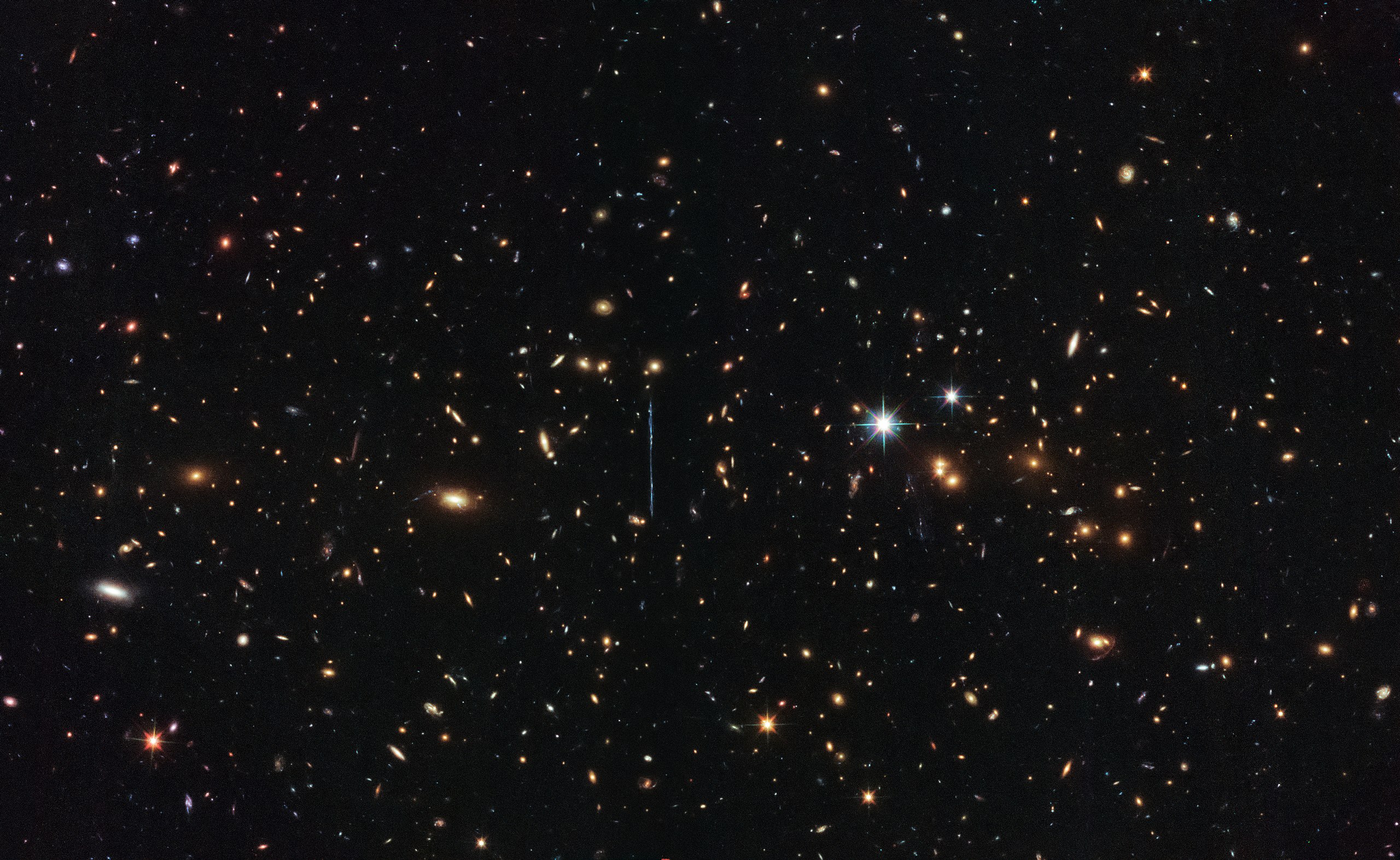
This 2014 composite Hubble image of the colliding El Gordo galaxy cluster shows the most massive galaxy cluster ever discovered in the first half of cosmic history. Officially known as ACT-CLJ0102-4915, it is the largest, hottest, and most X-ray-bright galaxy cluster ever discovered in the distant Universe, with a mass many thousands of times greater than that of the Local Group.
In total, there are trillions of galaxies spread across the observable, expanding universe.
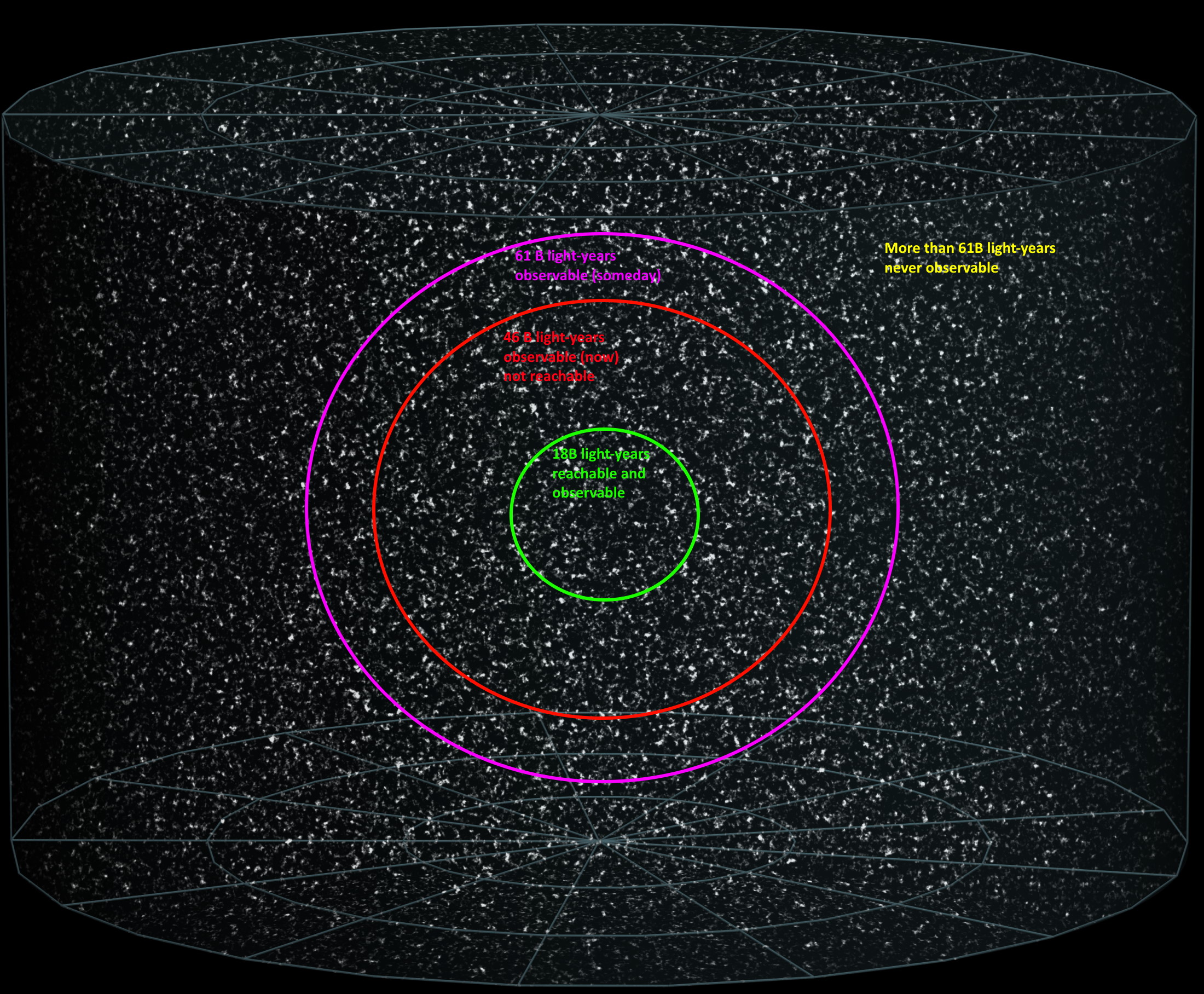
In a universe dominated by dark energy, there are four regions: one where everything in it is reachable, communicable, and observable, one where everything is observable but unreachable and incommunicable, one where things will someday be observable but aren’t yet, and one where things will never be observable. The labeled numbers correspond to our consensus cosmology as of 2024, with boundaries of 18 billion light years, 46 billion light years, and 61 billion light years separating the four regions. On scales of ~10 billion light years and larger, the universe is nearly perfectly uniform.
Because of the dark energy, news of humanity’s greatest deeds will never reach everyone.
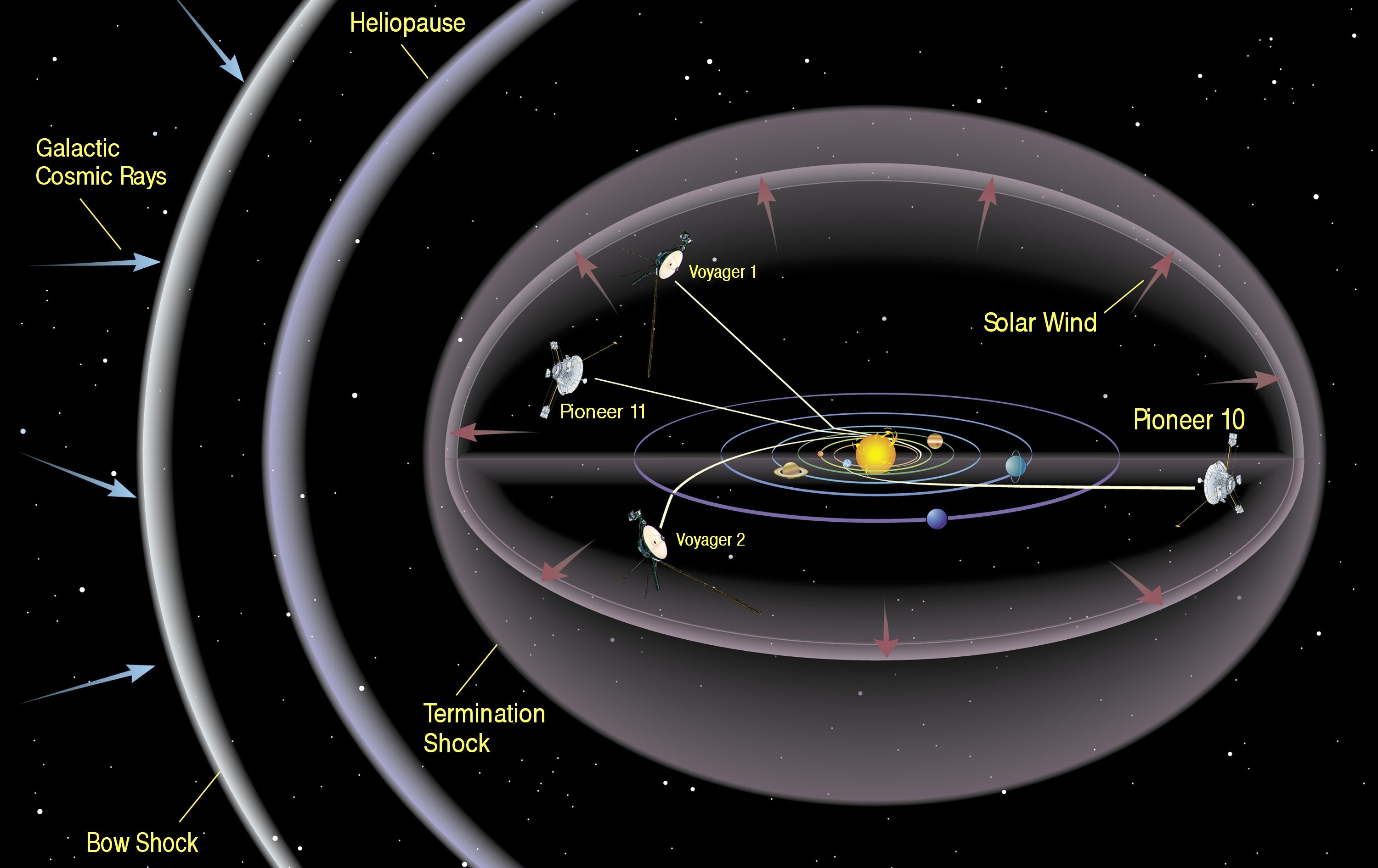
This 1997 artwork shows the planets of the solar system and the relative trajectories of the first four spacecraft on their way out of the solar system. In 1998, Voyager 1 overtook Pioneer 10 and in 2012 it crossed the heliopause and entered interstellar space. Voyager 2 entered interstellar space in 2018 and recently surpassed Pioneer 10’s distance in 2023; therefore, we strongly suspect that Pioneer 10 is also in interstellar space, but it is no longer functional, so we cannot make the critical measurements necessary to make such a determination.
And yet, from another perspective, we are truly special.
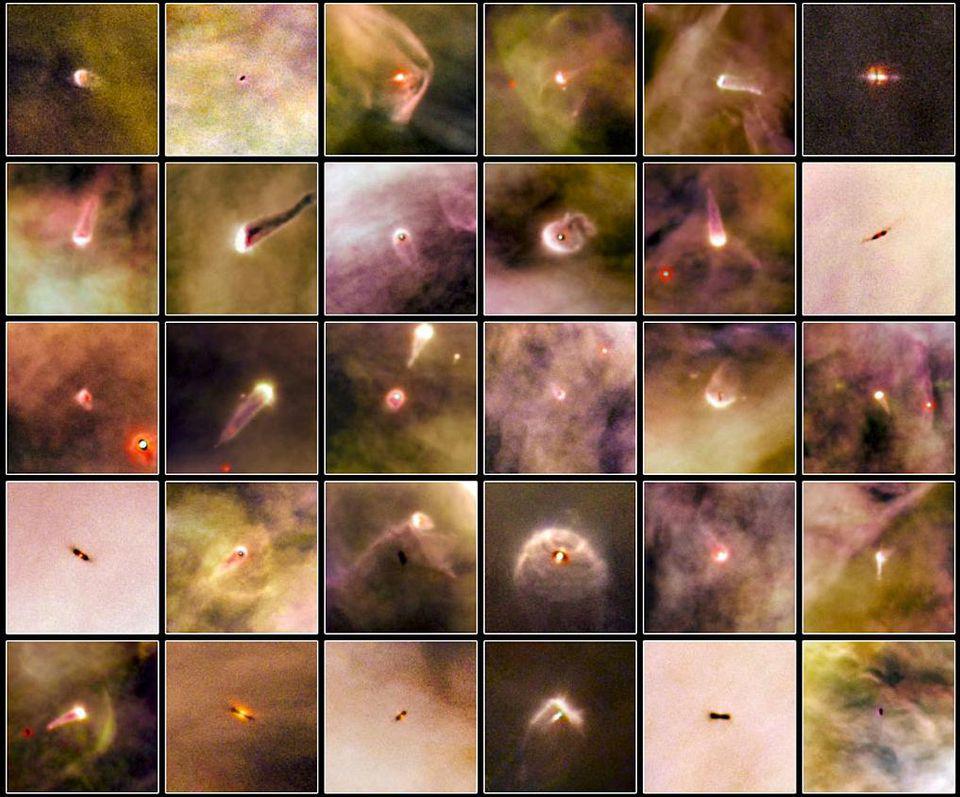
30 protoplanetary disks, or proplyds, as imaged by Hubble in the Orion Nebula. Hubble is a brilliant source for identifying these disk signatures in the optical, but has little power to probe the internal features of these disks, even from its location in space. Radio telescopes such as ALMA, as well as infrared observatories such as the VLT and JWST, are much better at this aspect of measuring these details. Planets largely form from protoplanetary disks, but different mechanisms may be responsible for different planet formation scenarios at different distances from the parent star.
We live on a rocky world, formed from ancient stellar ash.
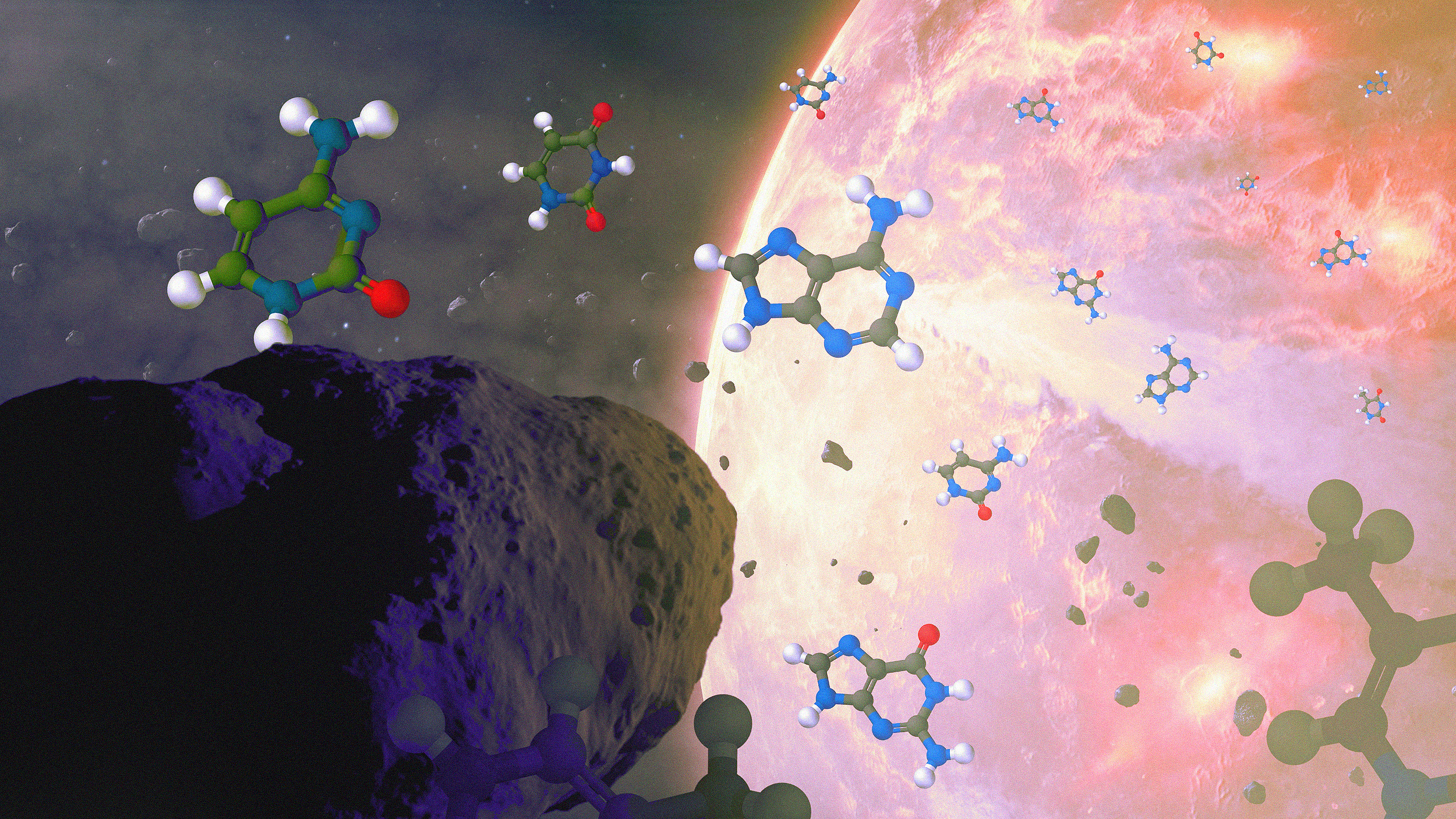
This conceptual illustration shows meteoroids carrying all five nucleobases used in life processes to the ancient Earth. All of the nucleobases used in life processes, A, C, G, T, and U, have now been found in meteorites, along with more than 80 types of amino acids—many more than the 22 known to be used in life processes here on Earth. Similar processes undoubtedly occurred in galaxies in most star systems throughout cosmic history, bringing the raw ingredients for life to all sorts of young worlds.
Continents and oceans have existed on the Earth’s surface for about 4 billion years.
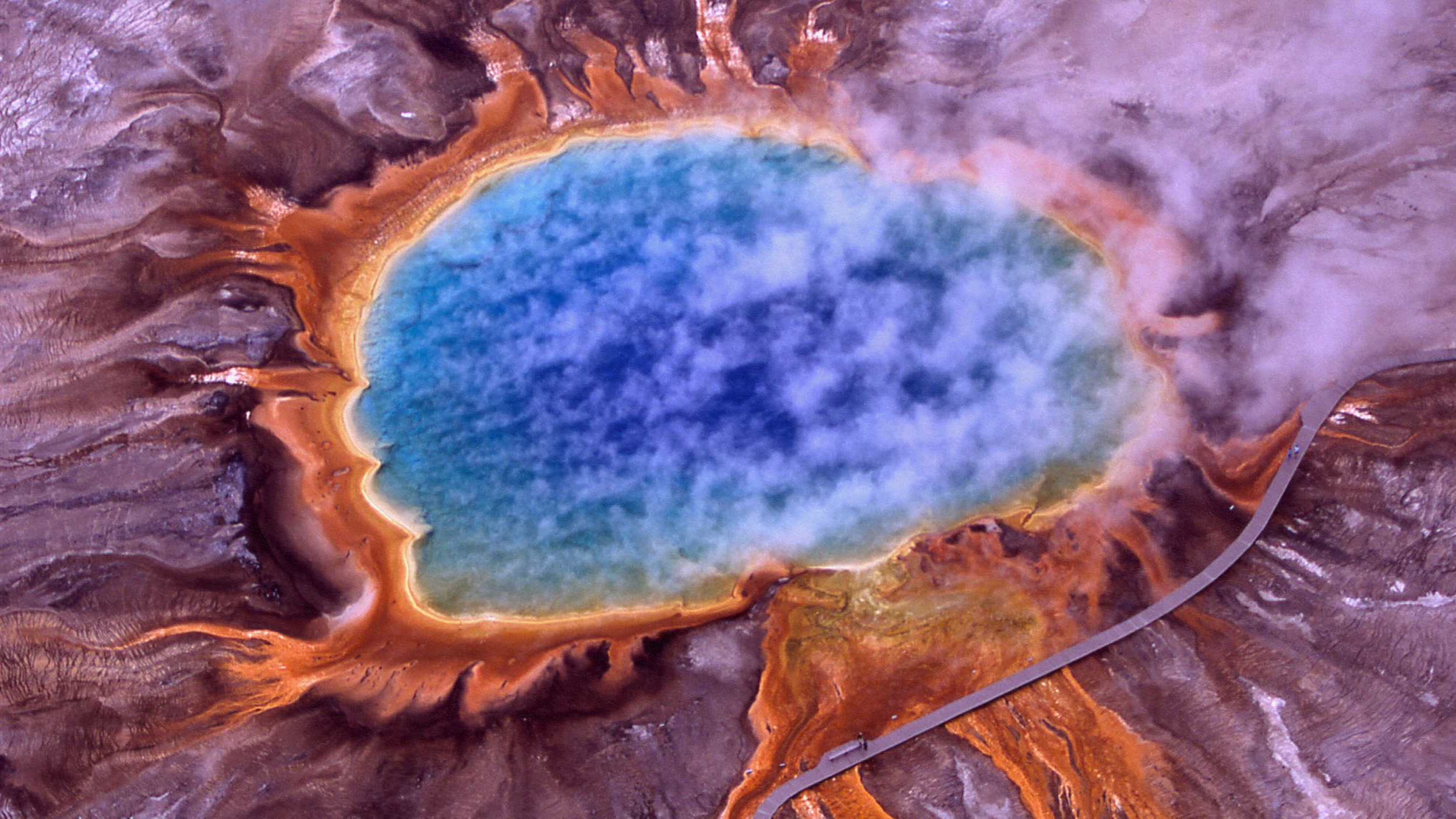
This aerial view of Grand Prismatic Spring in Yellowstone National Park is one of the most iconic hydrothermal features on land in the world. The colors are due to the different organisms that live in these extreme conditions, and depend on the amount of sunlight that reaches different parts of the springs. Hydrothermal fields like this are some of the best candidate locations for the origin of life on a young Earth, and could be home to abundant life on several exoplanets.
Life on Earth emerged early and has flourished ever since.

This tunneling electron microscope image shows a pair of specimens of the cyanobacteria species Prochlorococcus marinus. Each of these organisms is only about half a micron in size, but together cyanobacteria are largely responsible for creating the Earth’s oxygen: both in the beginning and largely even in the present day. Like all bacteria, their lifespan is much, much shorter than the lifespan of a human, and although cyanobacteria are relatively primitive organisms, they “only” date back no earlier than 2.7 billion years, while life on Earth goes back over a billion years, at least further than that.
Eventually, multicellularity, sexual reproduction, complexity, and a high degree of differentiation emerged.
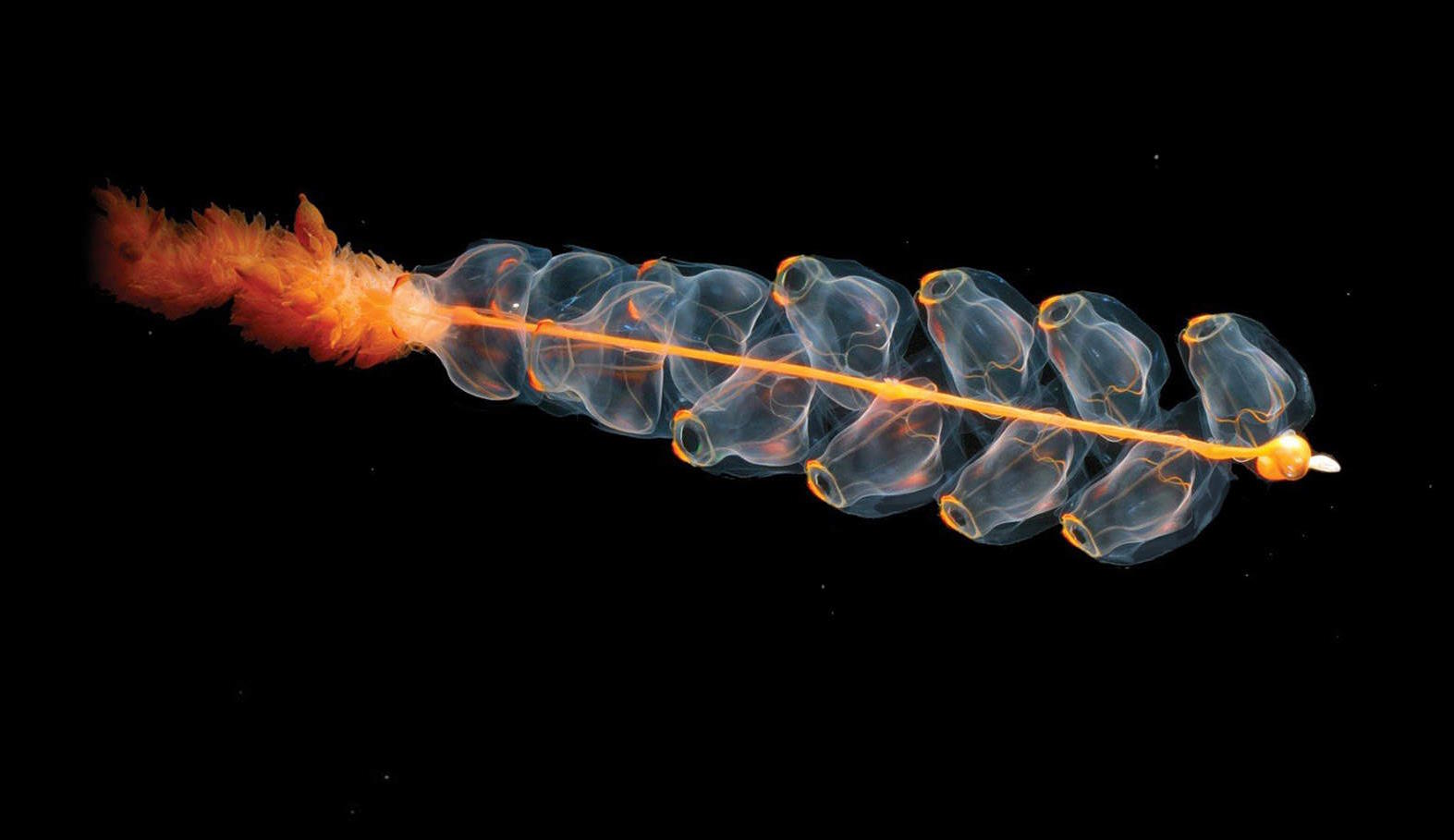
A fascinating class of organisms known as siphonophores is itself a collection of small animals that work together to form a larger colonial organism. These life forms exist on the border between a multicellular organism and a colonial organism. The ability of individual life forms to combine features such as multicellularity, complexity, and high levels of differentiation has led to the explosive diversity of life that has abounded on Earth over the past ~500 million years.
Within ourselves there is an organ that drives ‘thoughts’ like no other: the human brain.

This drawing shows a variety of skulls of humans, monkeys, and apes from several extant species. The older apes have smaller cranial capacities and smaller brains than humans, but on average much stronger jaws. To develop large brains, the jaw bones had to weaken: an adaptation to loss of function. Modern humans have the highest encephalization quotient of any known animal, followed by dolphins and then, at a distance, chimpanzees and some birds.
After 13.8 billion years, civilized humans finally understand our universe.
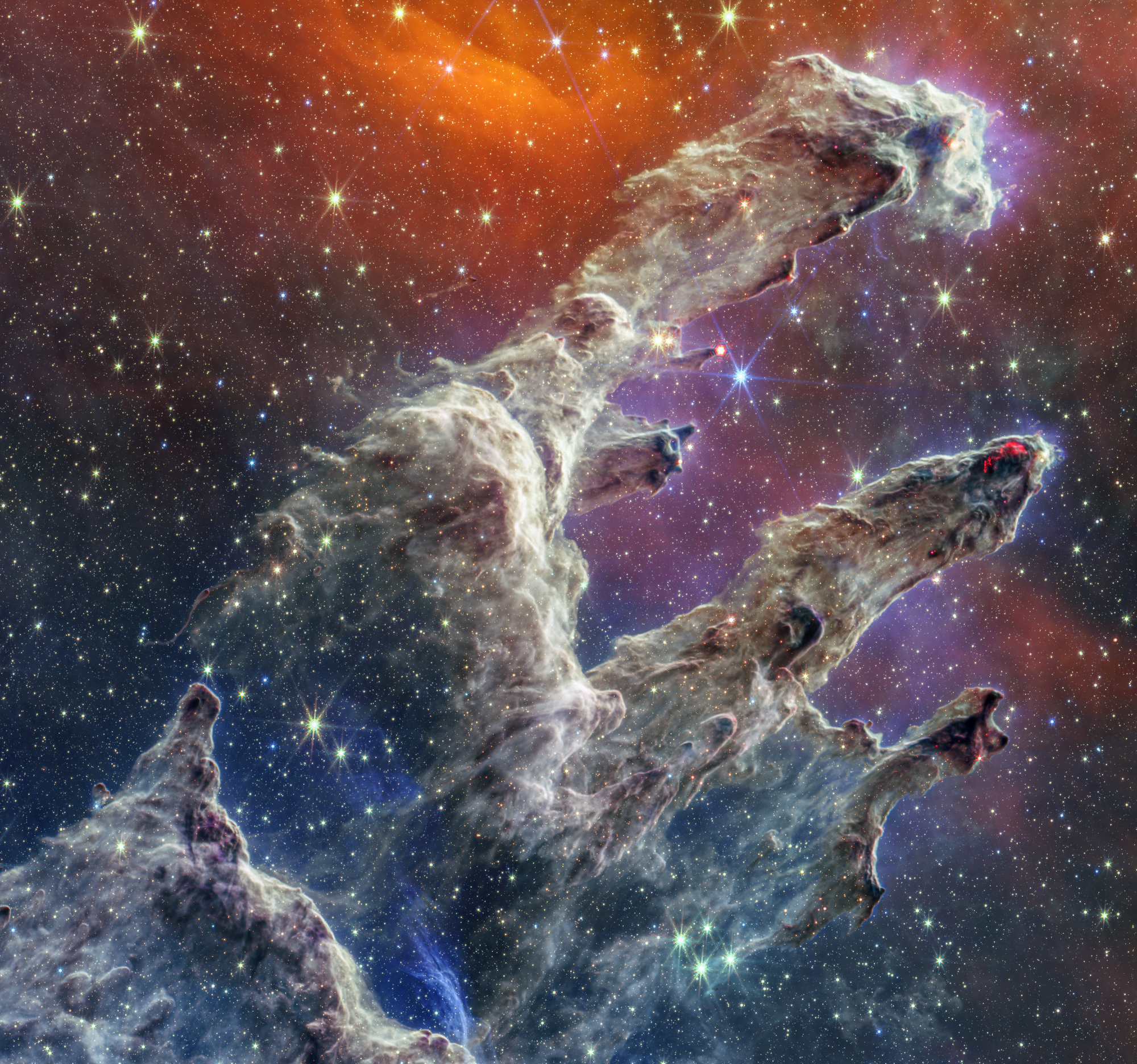
This colorful view of the Pillars of Creation uses a large JWST data set, which shows the tenuous and transient nature of these neutral gas features. Stars form in nebulas like this, but once the gas evaporates, all they can do is burn their fuel until they die.
The imagination, creativity and intelligence of man are unparalleled.

This museum exhibition features Deep Blue: the computer that was the first to beat a reigning world chess champion in a chess match, by defeating Garry Kasparov. Since Ruslan Ponomariov defeated Fritz in 2005, no human has defeated a top computer in a classical game of chess.
Perhaps one day we will appreciate our achievements enough.

Although many claim that the advent of quantum computing will lead to an overall speed-up of computation compared to classical computers, this is highly unlikely. Instead, the best computers will be hybrids: able to exploit the quantum part for applications where Quantum Advantage can be achieved, but falling back on classical computing techniques for all other (i.e., most) applications.
Mostly Mute Monday tells an astronomical story in images, visuals and no more than 200 words.
